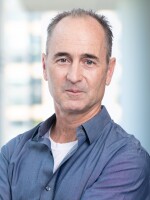RENEE MONTAGNE, host:
The International AIDS Conference, now in its 17th year, is being held for the first time in a Latin American country. It opened last night in Mexico City, and it comes at a time when there have been advances in providing treatment in many parts of the world. Still, the number of people infected with HIV continues to rise. NPR's Jason Beaubien reports from Mexico City.
JASON BEAUBIEN: Some 22,000 people have converged on Mexico City for a conference that mixes science, politics, theater, and activism.
(Soundbite of rally)
BEAUBIEN: Even before the gathering opened, thousands of people marched through the streets of downtown Mexico City to a rally denouncing homophobia and discrimination against people infected with HIV. Mariangela Simao, the director of Brazil's AIDS program, was in the crowd. Simao says this is a difficult time in the fight against the pandemic because many people have grown complacent. Also, she says, there are still huge global disparities in access to treatment, services, and drugs.
Ms. MARIANGELA SIMAO: Like in Mexico; Mexico pays 10 times more than Brazil pays for the same brand names.
BEAUBIEN: At the official opening session of AIDS 2008 last night, Mexican President Felipe Calderon announced that he's lifting restrictions on foreign drug manufacturers to allow them to produce and sell generic antiretrovirals in Mexico. And he vowed to make AIDS drug treatments available to anyone who needs them.
President FELIPE CALDERON (Mexico): (Spanish spoken)
(Soundbite of cheers)
BEAUBIEN: All, absolutely all antiretroviral drugs, President Calderon said, will be provided for free. Worldwide, 33 million people are infected with HIV and last year, AIDS claimed some 2 million lives. In recent years, antiretroviral drugs have become more available in more parts of the world, but they still only reach a fraction of the people who need them. Peter Piot, the head of UNAIDS, said progress is being made. Fewer people were infected last year. The number of AIDS deaths is going down. But Piot added that the end of AIDS is nowhere in sight.
Mr. PETER PIOT (Director, UNAIDS): We will set ourselves up for demoralization and failure if we base our strategies on the illusion that the end of AIDS can be achieved anytime soon.
BEAUBIEN: As AIDS competes with climate change, recession and rising global food prices, Piot warned that sustaining the fight against HIV in the future will be even harder.
Jason Beaubien, NPR News, Mexico City. Transcript provided by NPR, Copyright NPR.






